Roxycontin (Roxycodone) 30mg
$10.00 $7.00
Roxycontin (Roxycodone) 30mg pills/tablets:
Roxycontin (Roxycodone) treats moderate to severe pain when around-the-clock pain relief is needed for a long period of time. Slow-release oxycodone is a narcotic that should not be taken more often than every 12 hours.
You can buy Roxycontin (Roxycodone) 30mg tablets online without prescription (No RX).
product price is as: per pill
Minimum order quantity is: 90 pills
Roxycontin (Roxycodone) 30mg
What is the most important information I should know about oxycodone?
You should not use oxycodone if you have severe asthma or breathing problems, or a blockage in your stomach or intestines.
Oxycodone can slow or stop your breathing, and may be habit-forming. MISUSE OF THIS MEDICINE CAN CAUSE ADDICTION, OVERDOSE, OR DEATH, especially in a child or other person using the medicine without a prescription.
Taking this medicine during pregnancy may cause life-threatening withdrawal symptoms in the newborn.
Fatal side effects can occur if you use this medicine with alcohol, or with other drugs that cause drowsiness or slow your breathing.
What is oxycodone?
Oxycodone is an opioid pain medication, sometimes called a narcotic. Oxycodone is used to treat moderate to severe pain.
The extended-release form of this medicine is for around-the-clock treatment of pain. This form of oxycodone is not for use on an as-needed basis for pain.
Oxycodone may also be used for purposes not listed in this medication guide.
What should I discuss with my healthcare provider before using oxycodone?
You should not use oxycodone if you are allergic to it, or if you have:
- severe asthma or breathing problems; or
- a blockage in your stomach or intestines.
You should not use oxycodone unless you are already using a similar opioid medicine and are tolerant to it.
Most brands of oxycodone are not approved for use in people under 18. OxyContin should not be given to a child younger than 11 years old.
To make sure oxycodone is safe for you, tell your doctor if you have ever had:
- a head injury, brain tumor, or seizures;
- drug or alcohol addiction, or mental illness;
- liver or kidney disease;
- urination problems; or
- problems with your gallbladder, pancreas, or thyroid.
Some medicines can interact with oxycodone and cause a serious condition called serotonin syndrome. Be sure your doctor knows if you also take stimulant medicine, herbal products, or medicine for depression, mental illness, Parkinson’s disease, migraine headaches, serious infections, or prevention of nausea and vomiting. Ask your doctor before making any changes in how or when you take your medications.
If you use oxycodone while you are pregnant, your baby could become dependent on the drug. This can cause life-threatening withdrawal symptoms in the baby after it is born. Babies born dependent on habit-forming medicine may need medical treatment for several weeks.
Do not breast-feed. Oxycodone can pass into breast milk and may cause drowsiness, breathing problems, or death in a nursing baby.
How should I use oxycodone?
Follow all directions on your prescription label. Oxycodone can slow or stop your breathing, especially when you start using this medicine or whenever your dose is changed. Never take oxycodone in larger amounts, or for longer than prescribed. Tell your doctor if the medicine seems to stop working as well in relieving your pain.
Oxycodone may be habit-forming. Never share this medicine with another person, especially someone with a history of drug abuse or addiction. MISUSE OF NARCOTIC MEDICINE CAN CAUSE ADDICTION, OVERDOSE, OR DEATH, especially in a child or other person using the medicine without a prescription. Selling or giving away oxycodone is against the law.
Stop taking all other around-the-clock narcotic pain medicines when you start taking extended-release oxycodone.
Take oxycodone with food.
Do not crush, break, or open an extended-release tablet. Swallow it whole to avoid exposure to a potentially fatal dose. Never crush or break an oxycodone pill to inhale the powder or mix it into a liquid to inject the drug into your vein. This can cause in death.
Measure liquid medicine with the dosing syringe provided, or with a special dose-measuring spoon or medicine cup. If you do not have a dose-measuring device, ask your pharmacist for one.
You should not stop using oxycodone suddenly. Follow your doctor’s instructions about tapering your dose.
Store at room temperature, away from heat, moisture, and light. Keep track of your medicine. Oxycodone is a drug of abuse and you should be aware if anyone is using your medicine improperly or without a prescription.
Do not keep leftover opioid medication. Just one dose can cause death in someone using this medicine accidentally or improperly. Ask your pharmacist where to locate a drug take-back disposal program. If there is no take-back program, flush the unused medicine down the toilet.
What happens if I miss a dose?
Since oxycodone is used for pain, you are not likely to miss a dose. Skip any missed dose if it is almost time for your next scheduled dose. Do not use extra medicine to make up the missed dose.
What happens if I overdose?
Seek emergency medical attention or call the Poison Help line at 1-800-222-1222. An oxycodone overdose can be fatal, especially in a child or other person using the medicine without a prescription.
Overdose can cause severe muscle weakness, pinpoint pupils, very slow breathing, extreme drowsiness, or coma.
What should I avoid while using oxycodone?
Do not drink alcohol. Dangerous side effects or death could occur.
Avoid driving or operating machinery until you know how oxycodone will affect you. Dizziness or severe drowsiness can cause falls or other accidents.
Avoid medication errors. Always check the brand and strength of oxycodone you get from the pharmacy.
What are the possible side effects of oxycodone?
Get emergency medical help if you have signs of an allergic reaction: hives; difficult breathing; swelling of your face, lips, tongue, or throat.
Like other narcotic medicines, oxycodone can slow your breathing. Death may occur if breathing becomes too weak. A person caring for you should seek emergency medical attention if you have slow breathing with long pauses, blue colored lips, or if you are hard to wake up.
Call your doctor at once if you have:
- noisy breathing, sighing, shallow breathing;
- a slow heart rate or weak pulse;
- a light-headed feeling, like you might pass out;
- confusion, unusual thoughts or behavior;
- seizure (convulsions);
- severe constipation; or
- low cortisol levels — nausea, vomiting, loss of appetite, dizziness, worsening tiredness or weakness.
Seek medical attention right away if you have symptoms of serotonin syndrome, such as: agitation, confusion, fever, sweating, fast heart rate, chest pain, feeling short of breath, muscle stiffness, trouble walking, or feeling faint.
Serious side effects may be more likely in older adults and those who are malnourished or debilitated.
Long-term use of opioid medication may affect fertility (ability to have children) in men or women. It is not known whether opioid effects on fertility are permanent.
Common side effects may include:
- drowsiness, headache, dizziness, tired feeling; or
- constipation, stomach pain, nausea, vomiting, loss of appetite.
- dry mouth; or
- mild itching.
This is not a complete list of side effects and others may occur. Call your doctor for medical advice about side effects. You may report side effects to FDA at 1-800-FDA-1088.
What other drugs will affect oxycodone?
Some drugs can raise or lower your blood levels of oxycodone, which may cause side effects or make oxycodone less effective. Tell your doctor if you also use certain antibiotics, antifungal medications, heart or blood pressure medications, or medicines to treat HIV or AIDS.
Narcotic (opioid) medication can interact with many other drugs and cause dangerous side effects or death. Be sure your doctor knows if you also use:
- other narcotic medications –opioid pain medicine or prescription cough medicine;
- a sedative like Valium –diazepam, alprazolam, lorazepam, Ativan, Klonopin, Restoril, Tranxene, Versed, Xanax, and others; or
- drugs that make you sleepy or slow your breathing –a sleeping pill, muscle relaxer, tranquilizer, antidepressant, or antipsychotic medicine.
This list is not complete. Other drugs may interact with oxycodone, including prescription and over-the-counter medicines, vitamins, and herbal products. Not all possible interactions are listed in this medication guide.
Reviews
There are no reviews yet.


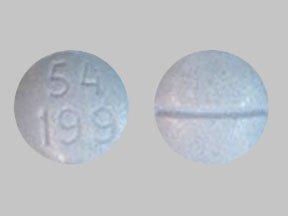
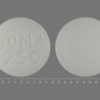
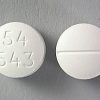
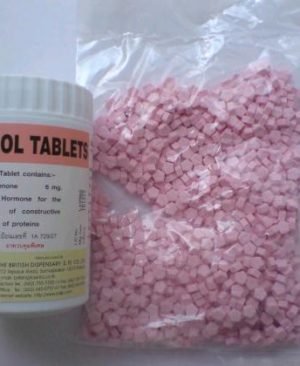
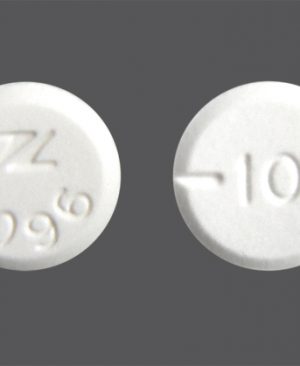
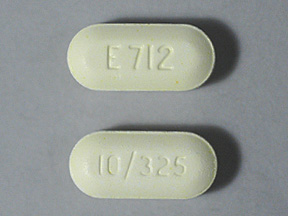
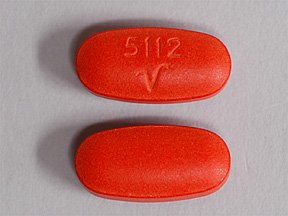

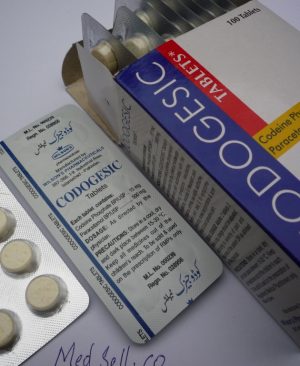
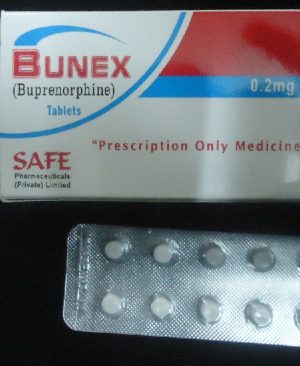

Be the first to review “Roxycontin (Roxycodone) 30mg”